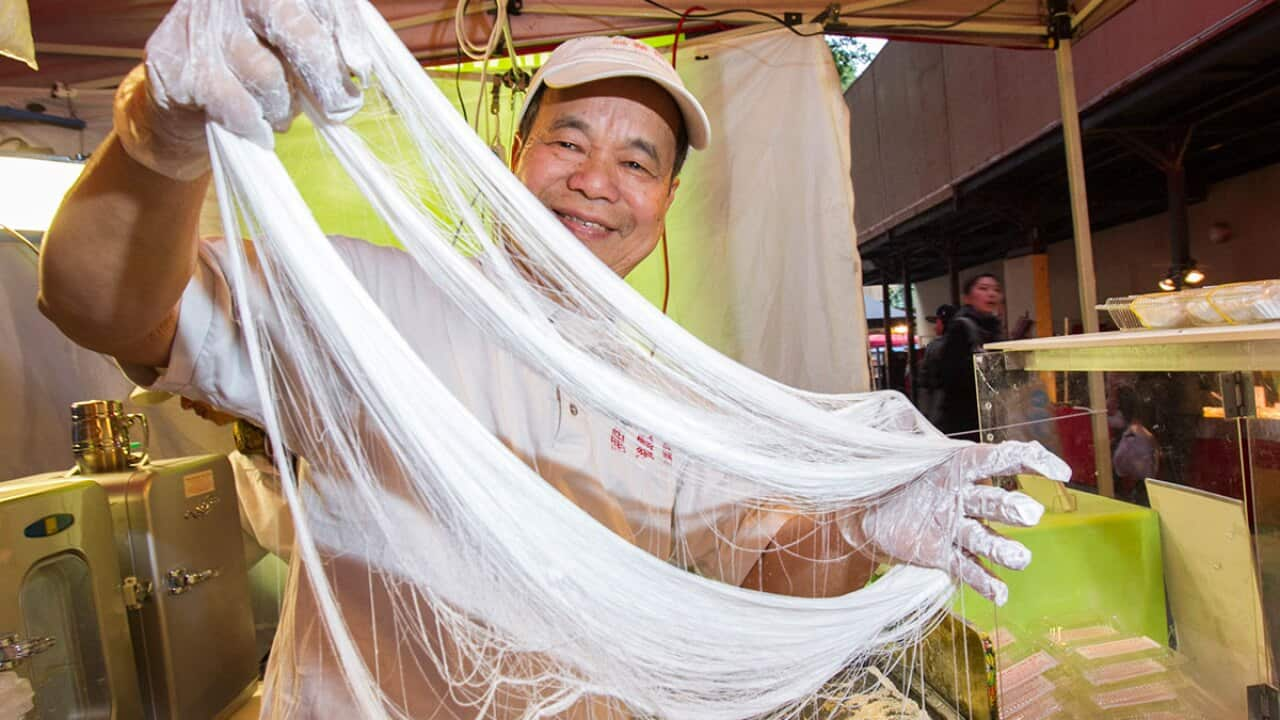In Australia we have just welcomed in 2025, but the people of Nepal are in the middle of 2075.
While it's not a new year for the Nepalese, who do not follow the Gregorian calendar, it is a time of celebration.
They will observe the first of Magh on January 14 with the festival, marking the end of the dark days of winter and the month of Poush, when religious ceremonies are forbidden.
On this day the sun is believed to leave its southernmost position and begin its journey north, bringing with it warmer, brighter days. So the food associated with the festival are made with ingredients that are warming in nature.
Key to the festival is chaku - a sweet made from hardened molasses, which is cooked with ghee, milk and topped with coconut, dates or nuts.
Chaku is made by boiling the molasses mixture in a large pot, and then pouring it out to cool.

A man pours molten raw hardened molasses on mud bucket to prepare molasses Chaku in Kathmandu on January 7. Source: Narayan Maharjan/NurPhoto/Getty Images
"If it's at a wrong temperature, it will turn out bitter and fleshy," Hansaraj Shrestha said. "Nobody will like it. It should be sweet and soft enough to melt in your mouth."

A man whips cooled raw hard molasses to make chaku. Source: Narayan Maharjan/NurPhoto/Getty Images
It is then pulled back and forth, and whipped around to stretch it. "It's to make the colour of the chaku lighter," Shrestha said.

Molasses chaku is usually prepared and consumed during the Maghe Sankranti Festival and throughout winter by Nepalese. Source: Narayan Maharjan/NurPhoto/Getty Images
"The reason people only eat it in winter is because it gives warmth to the body; in summer it is not popular."

It is believed that consuming chaku promotes good health and warmth in the cold months. Source: Narayan Maharjan/NurPhoto/Getty Images

A local Kathmandu woman packing chaku ready for sale ahead of the Maghe Sankranti Festival. Source: Narayan Maharjan/NurPhoto/Getty Images
"It's a sweet. It looks black. It's concentrated sugar - we boil it," Kc says. "It's imported from Nepal. You can make it at home, but it's time consuming.
"It's available [in the store] all the year, but it sells a lot at this time of year because of the Maghe Sankranti festival," says Kc, who sells it at a price of $2 for 250g.
Even if you don't get a chance to taste chaku, you can enjoy watching it made right here.



